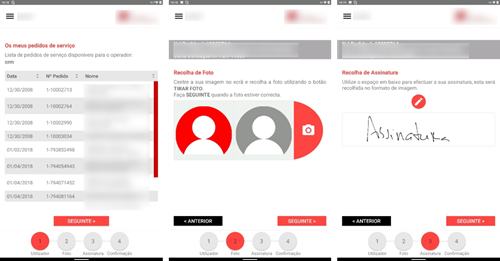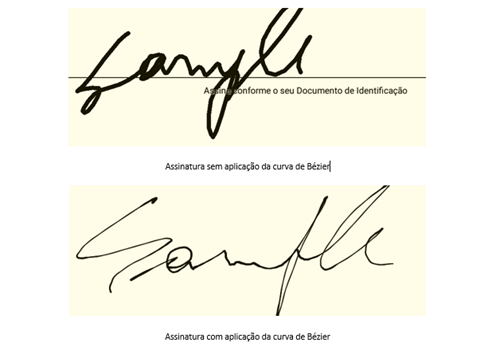
Context
One of the proofs of trust that customers can give worldIT is the request for help in finding solutions in technological areas where worldIT does not yet provide services.
The example of digital transformation involves improving and implementing processes. After several years of development services and support to its CRM system, one of our customers saw in worldIT the partner with the ability to respond to challenges of process improvement across multiple technological areas.
The challenge proposed by the customer was the design of a solution that would allow the collection of bio-metric data in order to ensure the issuance of official documents.
Implementation
The solution defined, went through the development of a native Android mobile application, in kiosk mode, used by employees, on tablets, and that allows to collect multiple data such as, photographs and signatures, integrated with the CRM system, and with communication with additional external systems.
In order to control security and process, when employees enter the app, they have access to a list of orders created and hosted in CRM. After selecting one of the "pending" requests from the list it will be possible to collect the photo and signature through the tablet, information is automatically associated with the request.
After the collection of the photograph and signature, the client confirms the data collected and simultaneously signals whether he agrees to the legal terms, thus ensuring transparently, GDPR requirements.
This solution is integrated with the CRM system through webservices, since this system is the master of customer information and orders.

The integration of the mobile application with CRM is done in two strands.
The first is the view of the list of requests that require the collection of biometric data in the mobile application. The employee has access to the list of their requests, that is, requests that are associated with them in CRM, as soon as they log in to the application (on the tablet) and through the menu they can access the list of either their requests or their teams requests.
The second corresponds to sending the photo and subscription to the CRM system that will be associated with the request as attachments.
In addition to the integration with CRM, and taking into account security, integration with the central LDAP identification system was also developed. This integration allows the authentication of employees in the mobile application, and only these can enter the application, with the advantage that accesses are managed centrally.
Challenges
One of the challenges in the implementation of this project is related to the collection of the signature, namely the difficulty in ensuring that the lines were not "pixelated". Even with the thin field, it was possible to see the pixels drawn in the curvatures of the signature. To overcome this problem, the mobile team has found a solution by applying Bézier curve calculations that allow to make the signature more "natural" by adding control points.

Another challenge was the communication between the mobile application and CRM. There was a need to develop proxy services that would allow communication between the two systems since CRM webservices are SOAP and those used by the mobile application are REST.
Evolution
The implementation of this mobile application will allow the customer to include future developments for the handling of other types of service requests or functionalities associated with other operational areas, improve customer and employee satisfaction, and leverage productivity, being a clear example of the digital transformation applied.
#Mobile #CRM #DigitalTransformation #worldIT
